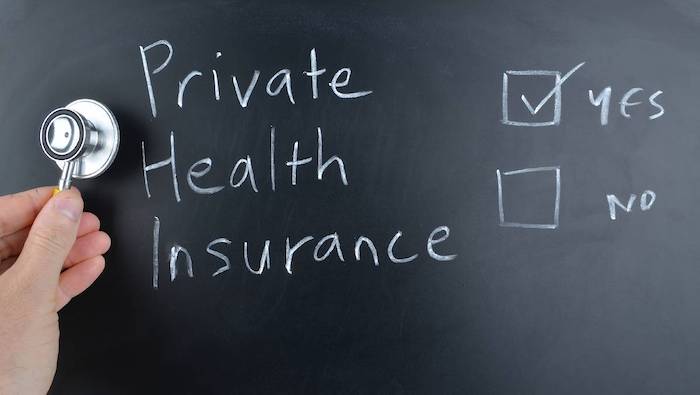When it comes to managing your insurance needs, finding ways to save money without compromising coverage is always a priority. One option that many insurance providers offer is bundling insurance. But does bundling insurance truly save you money? In this article, we will explore the concept of bundling insurance, its advantages, considerations, and how to find the best insurance bundle for your needs.
What is Bundling Insurance?
Bundling insurance, also known as multi-policy insurance, is the practice of combining different insurance policies under a single provider. Instead of having separate policies for each type of insurance, such as home, auto, and life, bundling allows you to consolidate them into one package.
Types of Insurance Bundling
There are several types of insurance bundling that you can consider:
Home and Auto Insurance
One common type of insurance bundling is combining home and auto insurance. This allows you to have both your home and car insurance policies with the same provider. It offers the convenience of managing your policies in one place and may provide potential cost savings.
Home and Life Insurance
Another option is bundling home and life insurance. This can provide financial protection for both your home and your loved ones in case of unexpected events. Bundling these policies can simplify the management of your insurance needs and potentially lead to savings.
Auto and Life Insurance
Combining auto and life insurance is also a possibility. This type of bundle offers coverage for your vehicle and life insurance benefits, providing a comprehensive approach to your insurance needs.
Advantages of Bundling Insurance
Cost Savings
One of the primary advantages of bundling insurance is the potential cost savings it can offer. Insurance providers often incentivize customers to bundle their policies by offering discounts and lower premiums. By combining multiple policies, you may be eligible for reduced rates, ultimately saving you money.
Convenience and Simplicity
Bundling insurance provides convenience and simplicity. Instead of managing separate policies with different providers, bundling allows you to streamline your insurance needs. With a single point of contact, managing claims, payments, and policy details becomes easier and more efficient.
Enhanced Coverage
In addition to potential cost savings, bundling insurance can provide enhanced coverage options. Insurance providers often offer additional benefits and coverage enhancements when policies are bundled together. This means you can benefit from broader protection for your assets and loved ones.
Considerations for Bundling Insurance
Policy Suitability
While bundling insurance can be advantageous, it is crucial to ensure that the policies you bundle are suitable for your specific needs. Not all insurance providers offer the same level of coverage or specialize in every type of insurance. Evaluate your requirements and ensure that the bundled policies adequately meet them.
Comparative Analysis
Before committing to an insurance bundle, it’s essential to conduct a comparative analysis. Obtain quotes from multiple providers and compare the costs, coverage, and benefits of each bundle. This analysis will help you make an informed decision and select the bundle that offers the best value for your money.
Deductibles and Coverage Limits
When considering insurance bundling, pay attention to the deductibles and coverage limits of each policy. While bundling can lead to cost savings, it’s essential to ensure that the deductibles and coverage limits align with your needs. Evaluate the impact of bundling on these aspects to make an informed decision.
How to Find the Best Insurance Bundle
Research and Compare Quotes
To find the best insurance bundle, conduct thorough research and compare quotes from various providers. Request quotes for the specific policies you want to bundle and review them carefully. Consider the coverage, premiums, and any additional benefits offered.
Evaluate Coverage Options
Assess the coverage options provided by each insurance bundle. Determine if they align with your needs and provide adequate protection. Look for any exclusions or limitations that may affect your coverage. It’s essential to understand what is covered and what is not before finalizing your decision.
Check for Discounts
When exploring insurance bundles, inquire about any discounts available. Many insurance providers offer additional savings for bundled policies. These discounts can vary, so be sure to ask about any potential cost reductions when discussing your options with providers.
Factors to Keep in Mind
Insurance Provider Reputation
When bundling insurance, it’s crucial to consider the reputation of the insurance provider. Look for a reliable and reputable company that has a strong track record of customer satisfaction and financial stability. Research customer reviews and ratings to gauge the provider’s reputation.
Customer Service and Claims Process
Consider the quality of customer service and the claims process provided by the insurance company. Prompt and efficient claims handling is crucial in times of need. Look for an insurance provider that offers excellent customer support and a hassle-free claims process.
Flexibility and Customization
Evaluate the flexibility and customization options available within the bundled insurance policies. You may have specific requirements or preferences that need to be accommodated. Look for a provider that allows you to tailor your coverage to suit your individual needs.
When Bundling Insurance May Not Be Ideal
While bundling insurance offers numerous advantages, it may not always be ideal for everyone. There are situations where unbundled policies may be more suitable. For example, if you have unique or specialized insurance needs that require tailored coverage, bundling may limit your options. Additionally, if bundling doesn’t result in significant cost savings, it may not be the best choice.
FAQs
1. Is bundling insurance always cheaper?
Bundling insurance can lead to cost savings, but it may not always be cheaper in every situation. It’s important to compare quotes, evaluate coverage options, and consider your individual circumstances to determine if bundling will result in savings for you.
2. Can I bundle insurance if I have multiple cars?
Yes, you can bundle insurance even if you have multiple cars. Many insurance providers offer multi-car policies, allowing you to insure all your vehicles under one bundle, potentially leading to cost savings.
3. Will bundling insurance affect my coverage?
Bundling insurance should not affect your coverage negatively. In fact, it may enhance your coverage by providing additional benefits and options. However, it’s important to review the details of each bundled policy to ensure that the coverage aligns with your needs.
4. What happens if I want to switch insurance providers?
If you decide to switch insurance providers, you have the option to unbundle your policies and move them to different providers. However, before making the switch, carefully evaluate the terms, coverage, and potential costs associated with the transition.
5. Are there any drawbacks to bundling insurance?
While bundling insurance can be beneficial, there are some potential drawbacks to consider. For example, if you need specialized coverage or have unique requirements, bundling may not offer the flexibility you need. Additionally, if the bundled policies do not provide adequate coverage for specific areas, it may be necessary to seek separate policies to ensure comprehensive protection.




